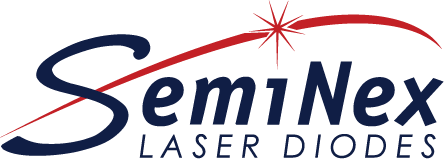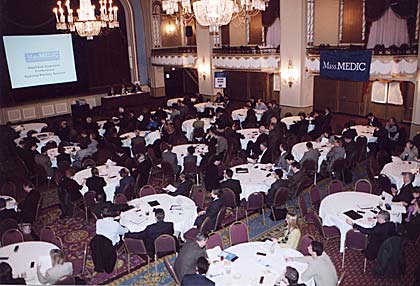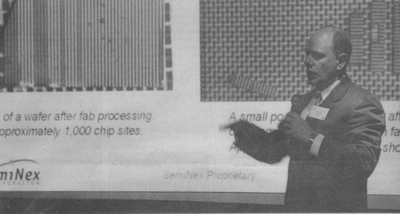A BOOTSTRAPPED MIDDLETON COMPANY RECENTLY MADE ITS FIRST MAJOR SALE AS IT ATTEMPTS TO PUSH ITS LASER TECHNOLOGY INTO THE GROWING MARKETPLACE KNOWN AS “WRINKLE ERADICATION.”
by Dike Henderson
Mass High Tech Journal
A bootstrapped Middleton company recently made its first major sale as it attempts to push its laser technology into the growing marketplace known as “wrinkle eradication.”
Now SemiNex Corp., which has developed prototypes for a more efficient consumer laser treatment, is focusing its business plan to partner with vendors who would then “sell” the services much the way marketing teams created Tupperware parties and “Botox Happy Hours.”
A motivated individual will invite friends and family to the house and demonstrate the SemiNex technology that removes wrinkles. Those convinced of its effectiveness can get a treatment right in the living room. Later, that consumer can host her own event.
“The work itself is done by a technologist, not a full physician,” said Bean. “This approach has worked with Botox, and we feel that we have a better technology because the tools are more effective.”
Bean declined to name his new customer, but the target that his company is aiming at is one famously served by Botox. Botox injection to eradicate wrinkles is the fastest-growing cosmetic procedure in health care, according to industry statistics. Close to 2 million people received injections each year, according to data by the U.S. Food and Drug Administration.
SemiNex technology calls for “laser removal” rather than injections. And company officials say they have a technology to provide “better performance and laser efficiency while drastically reducing the laser size and power consumption.” Company officials say approval from the FDA is not required. SemiNex would be entering a crowded market, as more than a dozen companies are involved in medical laser systems to eradicate wrinkles, tattoos and unwanted hair.
“We’re designed to be the Intel inside the box,” said David Bean, president of the 2-year-old company. “Our technology will be used by vendors, who will deal with consumers. This is a large field that will get larger. It’s where computers were in the late ’70s. The industry is going to explode.”
Locally, several companies are generating significant revenue in laser-treatment technologies. Candela Corp., based in Wayland, has annual revenue of about $110 million, according to public documents. Cynosure Inc., a private company with headquarters in Chelmsford, has annual sales of between $20 million and $49 million, according to figures in a database developed by Mass High Tech.
Palomar Medical Technologies Inc., in Burlington, also sells medical lasers appropriate to hair and wrinkle removal. It has annual revenue of about $70 million.
Microsulis Ltd. is a tissue ablation (removal) company from the United Kingdom that has opened U.S. operations in Waltham. Chief Operating Officer Nicholas Johnston said the company might look at wrinkle removal, but right now the company is focusing on women’s reproductive health issues. National players include Lumenis, Laserscope and Iridex.
The fact that so many companies are making money in the field suggests a growing opportunity. “With the aging of the U.S. society, there certainly will be a growing older population with discretionary funds to spend on wrinkle removal treatments,” said Dr. Michael Miller, a physician who runs a consulting firm in Cambridge. “A marketplace will be more competitive as more treatments are developed.”
SemiNex officials say the technology component that will distinguish them is that they will provide “high-power semiconductor lasers with six times the power and half the cost of conventional semiconductor lasers.”
Investors in addition to Bean include Donald Freeman, a former chief executive at Davol Inc. and HydroCision; and Dan Pulver, the company’s principal scientist.
Mass High Tech – Direct Link


